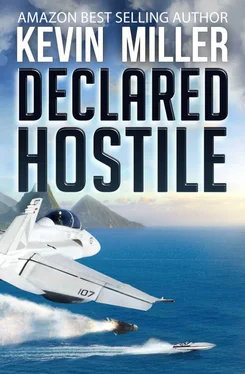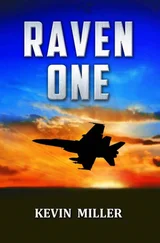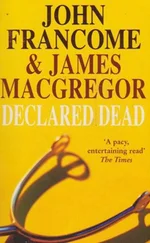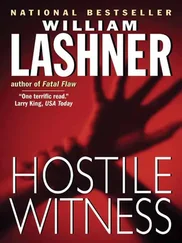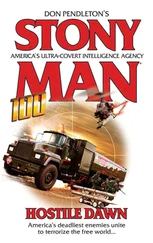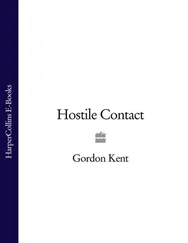Weed gathered his wingmen in a running rendezvous to the northwest. They had to abandon the slower helicopters, and the fighters were well below bingo fuel. He didn’t bother with Trinidad airspace restrictions as he climbed up between the buildups into the clear sky above— big sky, little airplane— and called the ship. A tanker was going to meet them southwest of Grenada, and, if they couldn’t plug, they could duck into the island to land and get fuel. It would be close. It always was. He wondered if Flip was okay and keyed the mike.
“ Rustler, Hunter. You got Slash one-one?”
“Affirm, sir. Got him.”
“Roger,” Weed answered as he let out a sigh of relief. His friend was okay.
* * *
Wilson heard that the threat had passed and they were heading home. As he came down from his adrenalin high, exhaustion swept over him, as did the pain, not the least of which was the pain caused to his eardrums by the screaming whine of the engine turbines above and the jackhammer thump of the spinning rotors. As if reading his thoughts, a crewman helped him don a cranial helmet which provided some relief and served as a better “pillow” than nothing. The SEAL corpsman took his wrist to assess his pulse and keep him comfortable.
Sleep. Just sleep . It was over, and he was alive. Three days in the woods, or was it four? He had made it. Father Dan! Wilson lifted his head to find him and saw the profile of his head. He raised his left hand, and Father Dan grasped it. Wilson closed his eyes, and drifted off. He was still surrounded by bodies, twelve stunned and gasping human beings crammed into the cabin. Most of them were strangers, people he had never met, strangers who had risked everything for him.
* * *
Edgar Hernandez waited in the command post. His life had come down to this: depending on the Army to snatch and grab the American pilot from an old priest. He had to give them their due. Crossing the channel was something they had never done before, and the Google Earth image of what everyone thought was the cabin and copies of some aviation sectional charts were all they had to go by. These kids were young and scared. Venezuela had supplied them with Mi-35m2 Caribes , the best helicopter gunship in the world, better than the American Apache , no expense spared. But the crews were ill-trained, even worse than his Viper pilots. They didn’t know how to fly their machines to the limit and knew even less about mutual support. The Super Pumas had gone ahead without an escort! And he and Daniel now expected them to pull off a miracle and get Wilson before the Americans did. Two minutes ago radar at San Ramón reported a formation of American fighters over Trinidad. “Dammit,” he swore under his breath.
Twenty minutes passed, and the command post received only broken radio transmissions from the Caribes . Then, excited cries…. One down. Two . They see the cabin and are returning! Yes . Then long minutes of nothing.
After ten minutes of unnerving silence, a young voice called the tower at San Ramón for clearance to land. “Dammit, I want a mission report from that aircraft!” Hernandez fumed.
Another minute passed, and the pilot transmitted again. “All lost…. American Hornets. Seahawk …. No success…. Injured. One engine out.”
Hernandez understood the meaning of the disjointed transmission. Failure . And imminent death. For him, his wife, and his children. Daniel would not forget. It might not happen this week, but Daniel would act before the month was over: a brutal execution of his family one-by-one while Hernandez watched. When the other American was plucked from the waters off the capitol, his back-up plan had been dashed as well, despite the loss of another American fighter whose pilot reportedly rode it in.
He shuddered at the thought of what he had to do.
He met the Army Hind crew on the flight line as they climbed out of their damaged helicopter and inspected the jagged holes where American cannon punctured the aluminum skin around the boom. The Plexiglas of the nose gunner’s canopy had two impact marks on the left side and another on the skin under the door release; the gunner had been saved by armor plate. The aircraft and its crewmen were lucky — they and the Super Puma that escaped before the fight began were the only survivors. Twelve helicopters were sent and two returned… and Hernandez knew that if the Americans had really wanted these two aircraft they could have had them.
The Army pilots were wide-eyed in bewildered shock. The four soldiers they had carried in the cabin, weak from airsickness and fear, accepted the shots of brandy handed to them by the doctor. The pilots were uneasy with the fact they were alive and feared they would be shot. They feared more, though, the stigma of not having died honorably against the enemy. They begged to go back and share the fate of their dead countrymen. Hernandez had known from the beginning it was a long shot to send these men. His aide walked up and told him the initial count was fifty-nine dead or missing, mostly soldiers in the back of the aircraft who had a zero chance of survival. These young pilots would be haunted by this night — and the faces of their mates — well into old age, as would Hernandez. He took a shot of brandy when he thought no one was looking and downed it. Dozens of other shots remained on the tray… unclaimed by the dead.
Who knew how many seamen had died trying to capture the downed American off Caracas? Even though the Americans had again snatched one of their own from under the noses of the Venezuelans, the effort had at least claimed another Hornet whose pilot did not get out. However, one dead American pilot and two downed Hornets, compared to numerous destroyed surface-to-surface missile sites, a half dozen fighters and ten or more helos, was no comparison at all. The Bolivarian Republic could not sustain these losses, not even one more day. This was their maximum effort, and it had all ended in failure. Capturing one American alive would have made the toll worth it — but it was not to be.
Buoyed by a second shot of liquid courage, Hernandez summoned his aide. “Prepare a Viper , wingtip missiles only, and full twenty millimeter.” The reluctant aide went off to do as he was ordered while Hernandez scanned the flight line, now quiet, nearly empty of aircraft. He looked up at the moon and studied the way the silvery backlit clouds to the south clung to the mountains, the mountains of his childhood.
The taxiway was the runway least damaged by the initial American raid, and the repairs were complete. It allowed plenty of concrete for Hernandez, and he suited up in silence while forming his plan. Expressionless, he strode to the jet, conscious of the crewmen who snapped to attention in an orderly row. His aide appeared, face full of sorrow. “The aircraft is prepared, mí general.”
“Good,” a stoic Hernandez replied as he preflighted the jet. The crewmen followed him through each step, ready to address any anomaly he found. Hernandez completed his inspection as if on autopilot, and once he was again at the ladder, he gave his aide his wedding ring and took his St. Christopher’s medallion from around his neck. The somber ground crew knew the meaning of his actions, but they were unwilling and unable to stop him. Hernandez reached into his vest and pulled out his parachute shroud cutter. He reached up to his forehead, grabbed a length of dark, wavy hair, and cut it. He then placed the hair inside his garrison cap emblazoned with the insignia of a Mayor General of the Fuerza Aérea Venezolana and handed it to the shaken capitán.
Читать дальше
